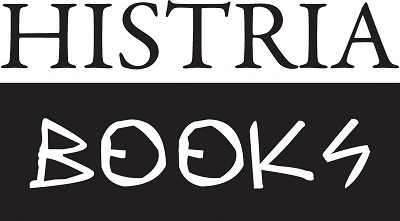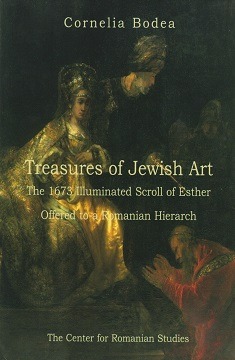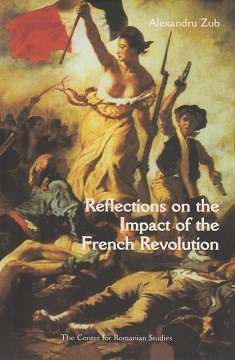Description
by Cornelia Bodea
The Library of the Romanian Academy in Bucharest holds a rare piece of Jewish art from the seventeenth century, an illuminated scroll of the Book of Esther, dated 1673. This manuscript is a unique example in terms of Jewish art because of two distinct components that it exclusively possesses. One of them is the date indicating a year in Cyrillic characters, viz. 7181 since the creation of the world according to Byzantine chronology, corresponding in the Gregorian calendar to the year 1673. The second component is the coat of arms of the Principality of Moldavia, placed within the escutcheon in the ornamental section at the beginning of the scroll.
These essentially biographic elements indicate an age for this type of megillah, and although this is not the very year when it first took shape, they prevent specialists from oscillating between the sixteenth, seventeenth centuries, and the mostly preferred eighteenth century. In addition, the presence of the Moldavian coat of arms in the escutcheon, or the place reserved for the name or the armorial bearings of the person it was meant to be addressed to, along with other evidence, points to a Romanian holder, namely Dosoftei, the metropolitan of Moldavia. The scroll provides evidence of important cultural and spiritual relations between two peoples living side by side in the same land, Romanians and Jews, as well as two noted scholars of the time, Dosoftei, the Romanian archbishop, and the cabalist Nathan Nata Hanover, rabbi for over fifteen years (1657-1673) of the Jewish community in Iasi, the capital city of the Moldavian principality.






Reviews
There are no reviews yet.